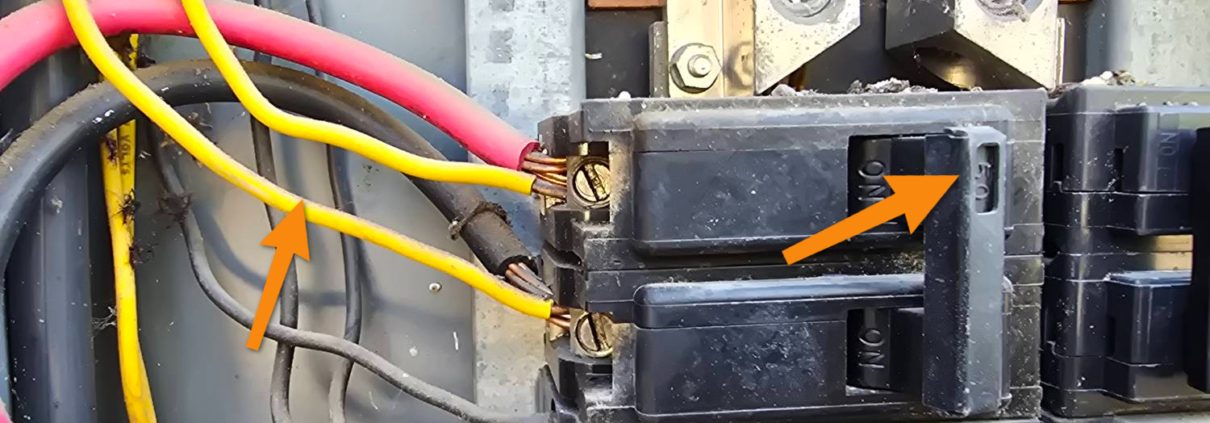Double Tapped Breakers are Dangerous!
From a home inspector’s perspective, double tapping a breaker—when two electrical wires are connected to a single breaker terminal—can pose significant safety risks. Circuit breakers are designed to handle only one wire per terminal in most cases, ensuring a secure and proper connection. When two wires are attached to a single breaker, it can lead to loose connections, as the breaker’s terminal may not be designed to clamp both wires tightly. Loose connections generate excessive heat, which may lead to arcing and increase the risk of electrical fires. This simple mistake could have serious consequences for the safety of a home and its occupants.
One of the primary dangers of double tapping is the potential for overloading the circuit. When two circuits share a breaker, there’s a higher likelihood that the breaker will be tasked with handling more current than it was designed for. While breakers are built to trip when they sense too much current, the double-tapped wires may prevent the breaker from functioning properly. If the breaker fails to trip in an overload situation, it can allow excessive heat buildup, putting the entire electrical system at risk.
Another issue with double tapping is its potential to go unnoticed by homeowners. This improper wiring practice often occurs when additional outlets, lighting, or appliances are added to an existing circuit without expanding the electrical panel properly. It may seem like a quick fix, but many homeowners or untrained electricians may not realize the potential hazards they’re introducing. Since the effects of double tapping may not be immediate, the wiring could remain a fire risk for years without anyone being aware, until something goes wrong.
As a home inspector, I always recommend that double-tapped breakers be corrected by a licensed electrician. Depending on the panel and the situation, the issue can be addressed by installing a tandem breaker, adding a subpanel, or rewiring the circuit properly. This small investment in professional repair is essential for safeguarding the home from potential electrical hazards and ensuring the system is up to code. When it comes to electrical safety, it’s always better to err on the side of caution.




Leave a Reply
Want to join the discussion?Feel free to contribute!